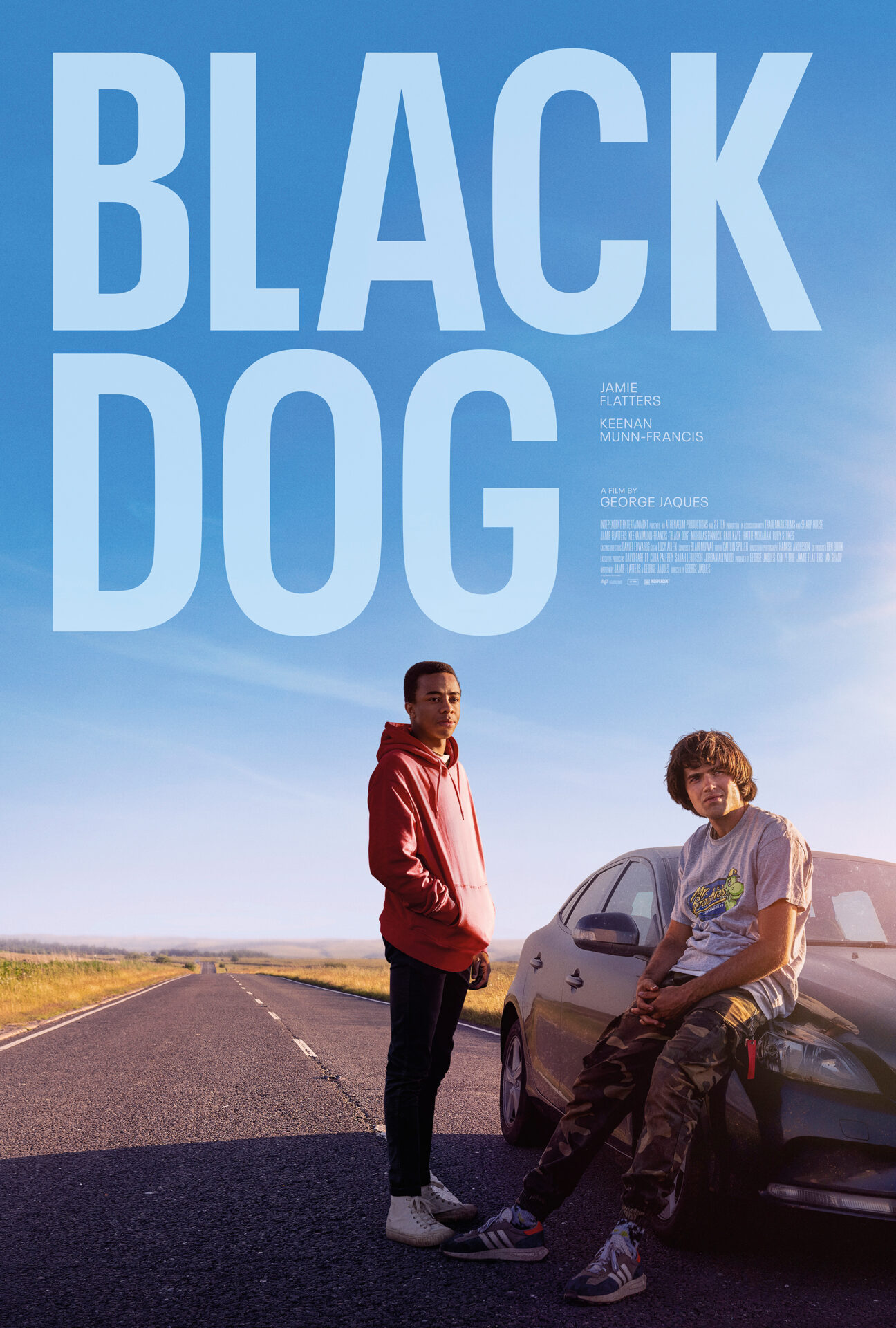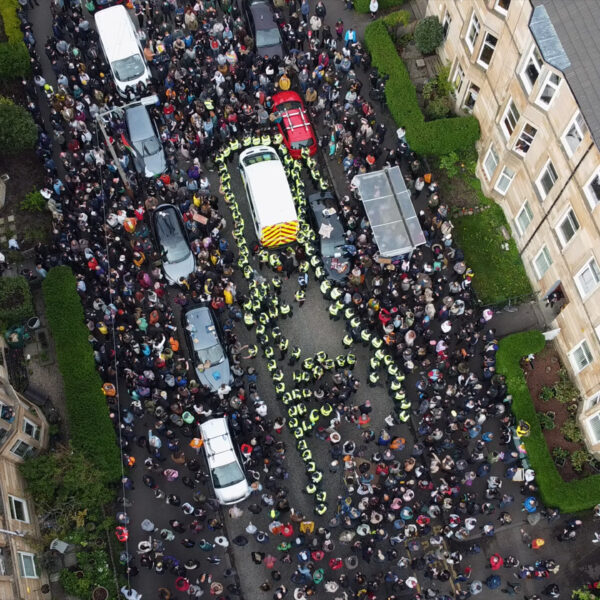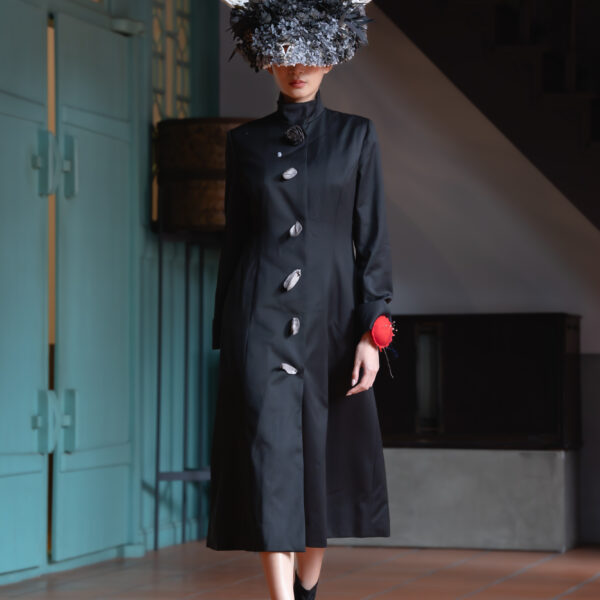Glasgow Film Festival Interview | ‘Black Dog’
THE SILENT DEPTHS OF OUR HUMAN JOURNEY
The fear of realizing that we know nothing gradually forces us to convince ourselves that we have to be capable of knowing, and handling, everything. Through friendship, family, love, and loss, we embark on a journey of finding answers in others and questions in ourselves, and call that journey life.
It is in this in-between middle-zone of learning what you don’t know and unlearning what you think you do, that Black Dog’s protagonists, Sam and Nathan, find themselves – confined together, characteristically apart, universally human.
George Jaques’ first feature crests the surface of the struggles of inner growth without explicitly diving in, revealing more through what we don’t say than what we do. Everything learned here is involuntary but necessary, and the film develops trust between two young not-quite-men-but-no-longer-boys in tandem with them developing a trust with themselves.
Through delicate cinematography and subdued moments of true vulnerability, the deeper understanding of why they are running unfold, revealing the ghosts they carry with them. Here, you find the essence of Black Dog’s rawness in its sympathetic restraint.
And yet, across the table from me one Thursday afternoon, the room is filled with an energetic openness and certainty, an excitable honesty that contrasts with the calm stillness of a white t-shirt and thoughtfully matching glasses. Jaques, seated beside the film’s producer Ken Petrie, is assured, beaming, excited to talk about a vision he has nurtured for years.

“You know, Jamie, who plays Nathan – we met when were 16. We had different experiences growing up, and felt alienated when everyone when left London to go to university. We felt lost in some ways. That vulnerability really impacted the script – and then Black Dog became about two boys from different background who united in this need for going up north.”
For Jaques, portrayals of a familiar exterior through the uniqueness of unfamiliar internal experiences has been a creative centrepiece. Endlessly fascinated by human beings, previous short films and plays have delved into the under-psyche of teenage drug culture and despondency.
With Black Dog, this observational feel continues, creating a viewing experience amidst moments that feel like intrusion, learning things we shouldn’t and witnessing breakdowns in self-control we weren’t supposed to. In as much as Sam and Nathan learn to let each other into their spaces along their journey towards the border of Scotland and England, we too travel with them to their inner borders.
Ken explains, “It was so important to see England and the North of England and the journey into Scotland – it was so important to see all of that journey on screen, it was the backbone of the movie. I drove back and forth across the border to make sure we’d get it just right.”
Getting things ‘just right’ has been at the heart of the film’s production – no less because of the story itself, balancing the range of subject matters, the light and dark, buoyancy and weight, the extrovert (Nathan) and the introvert (Sam).
It is this impactful balance of honesty that resonates, tenderly guiding the narrative forward. After Nathan saves Sam from getting beaten up (but steals his wallet, only to return it later), both discover they have plans to head “North” – Nathan, to find his sister, Sam, for reasons not yet known. It may seem like the duo are drawn together out of loneliness, debt, even convenience. And while all these things are true, there is deeper thread that keeps them drawn together.

Ken Petrie (L), George Jaques (R), courtesy GFF
There are themes of longing without it becoming a heartbreak story. There is family, without turning into a social breakdown or definitive reunion. There are questions around mental health, grief, loss, draw like translucent veils across the screen without clouding the whole. For Jaques, maintaining this duality was important: “These characters would have gone through those things, but it doesn’t define them.”
“I have always wanted to make work that is socially conscious, create a talking point and break taboos, especially when I was working with charities in the early days, and with my short films. Shifting to a feature like Black Dog has allowed me to still tell meaningful stories, but it’s a story that’s going to make you laugh and cry and everything in between. I love looking at the more taboo themes, but they’re a part of it rather than the whole thing.”
Black Dog asks how these things are innately part of the human condition, how we learn to carry all these selves and experiences around with us because they are us.
Ken nods in agreement. “Exactly,” he says. “It’s such an easy film for people to tap into and connect with, and it resonates when they see their own journey.”
The film itself, of course, is a literal journey. Discussing the filming process, Ken notes the importance of the car itself. “The car was actually quite a therapeutic place for me for a long time – in fact, I’ve had some of my best conversations in the car.”
Jaques muses, “Me too. It … it makes you sit with you.”
Although beside each other, Sam and Nathan are, at first, sitting with themselves.
Both have adjusted to self-isolation, and between London and Scotland, the seemingly-endless A-road becomes a path to understanding and connection, the car an inescapable space for meditative confrontation with their ghosts, and, finally, redemptive conversation with each other.
The characters discover they have a similar relationship around family, loss, and grief, experiencing different kinds of abandonment and disappointment.
When it comes to exploring this pre-adult stage of life, considering family is particularly poignant for Jaques. “There’s a long time in your life where you think your parents are superheroes. And then you realise they have flaws.”
Two different kinds of experiences are what truly bring Sam and Nathan together. “I really wanted portray grief in all of its different ways because it hits you very differently,” Jaques explains. “I wanted to film to feel accessible and I wanted it to feel like you resonate with bits of Nathan or bits of Sam – that there’s something there for everyone.”
Ken carries a similar hope. “You want to provoke conversations about the deeper, harder themes of the movie with people, have it be a catalyst for some of the conversation, but to also just reconnect.”
While many of us viewers may be older, long past the transition from adolescence to adulthood, a learning, childlike self is still within us, reaching out to those around us.
Black Dog is a reminder of the things we’d forgotten but never should have, and pays respect to the things we’d like to but can’t. It connects us to the delights and darkness of being young, and how that person is still within us. It creates a sense of community and connection between the people we know and those we don’t, the things we have been through and the things we’re all inescapably bound to.
“It doesn’t feel like it’s my film, or Jamie’s film, or just one of our stories,” Jaques says. “It’s a mixture of everything and everyone.”
Black Dog hits cinemas later this year. The Glasgow Film Festival runs to March 10.


